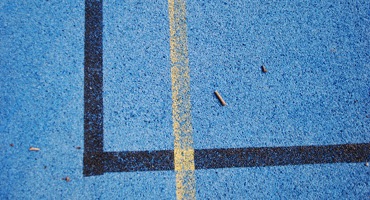

















































Funding: Swiss National Science Foundation (SNSF)
Duration: 01.03.2024 – 29.02.2028
Amount awarded: CHF 629,380
This research project inquires into class practices in physical education (PE) at secondary schools in German-speaking Switzerland from a subject-specific and narrative perspective. Its main aim is to explore how teaching and learning takes place in PE, what is taught and learned, and how these experiences unfold in daily PE lessons.
Drawing on the conceptual and methodological framework of Narrative Inquiry, the project understands teaching not merely as the transmission of knowledge or skills, but as a lived, storied, and co-constructed practice. The class practice is shaped by the dynamic interplay of teachers, students, curricular content, and contextual conditions.
The study focuses on the concept of Curriculum Making—a process-oriented and narrative approach that foregrounds how teachers and students jointly shape the curriculum as it is enacted. Unlike traditional concept conceptions of curriculum as fixed or top-down (e.g., mandated curriculum), Curriculum Making highlights the ways in which content and pedagogical processes take form through negotiation, interpretation, and lived experience.
While this approach has gained considerable traction in Anglo-American scholarship, it remains underutilized in German-speaking Sportdidaktik. This project seeks to fill that gap by empirically grounding Curriculum Making in the context of PE.
This question explores which topics, values, and practices are selected, emphasized, or marginalized in PE. It analyzes how content decisions are shaped by mandated curricula, school cultures, institutional infrastructures, scheduling constraints, and broader societal discourses on sport and health.
In line with the Curriculum Making approach, the project assumes that the subject matter in PE is highly contingent, emerging from the interplay of institutional, material, and biographical factors. PE in Switzerland is based on an open curriculum framework, granting teachers significant autonomy—both a resource and a challenge.
This question focuses on how teaching unfolds as an emergent and dialogic process. It examines how teachers structure lessons, design learning tasks, and mobilize space and materials—and how students engage with, adapt to, or resist these arrangements.
Particular attention is paid to the bodily, relational, and practical dimensions of teaching, and how teachers’ subject-specific orientations and sport biographies influence their pedagogical decisions.
Teaching is therefore not a linear transfer of content but a co-constructed and situated practice, shaped by interpersonal interaction, material context, and epistemic engagement.
This question explores learning in PE beyond normative assumptions about fun, fitness, or discipline. It focuses on physical, emotional, social, and cognitive learning, as revealed in real-time interactions in the lessons.
Learning in PE is thus conceptualized as a narrative process of becoming—a form of embodied meaning-making that contributes to identity formation and subject-specific literacy.
The project employs a qualitative, interpretive approach rooted in Narrative Inquiry. Stories are not just illustrations— they are the analytical medium through which meaning in PE is understood.
This dual approach grants access to tacit knowledge, biographical influences, and pedagogical decision-making processes.
The project positions teaching in PE as a complex, dialogic, and storied practice. By capturing the lived experiences of PE lessons, it contributes to both educational theory and practical development.